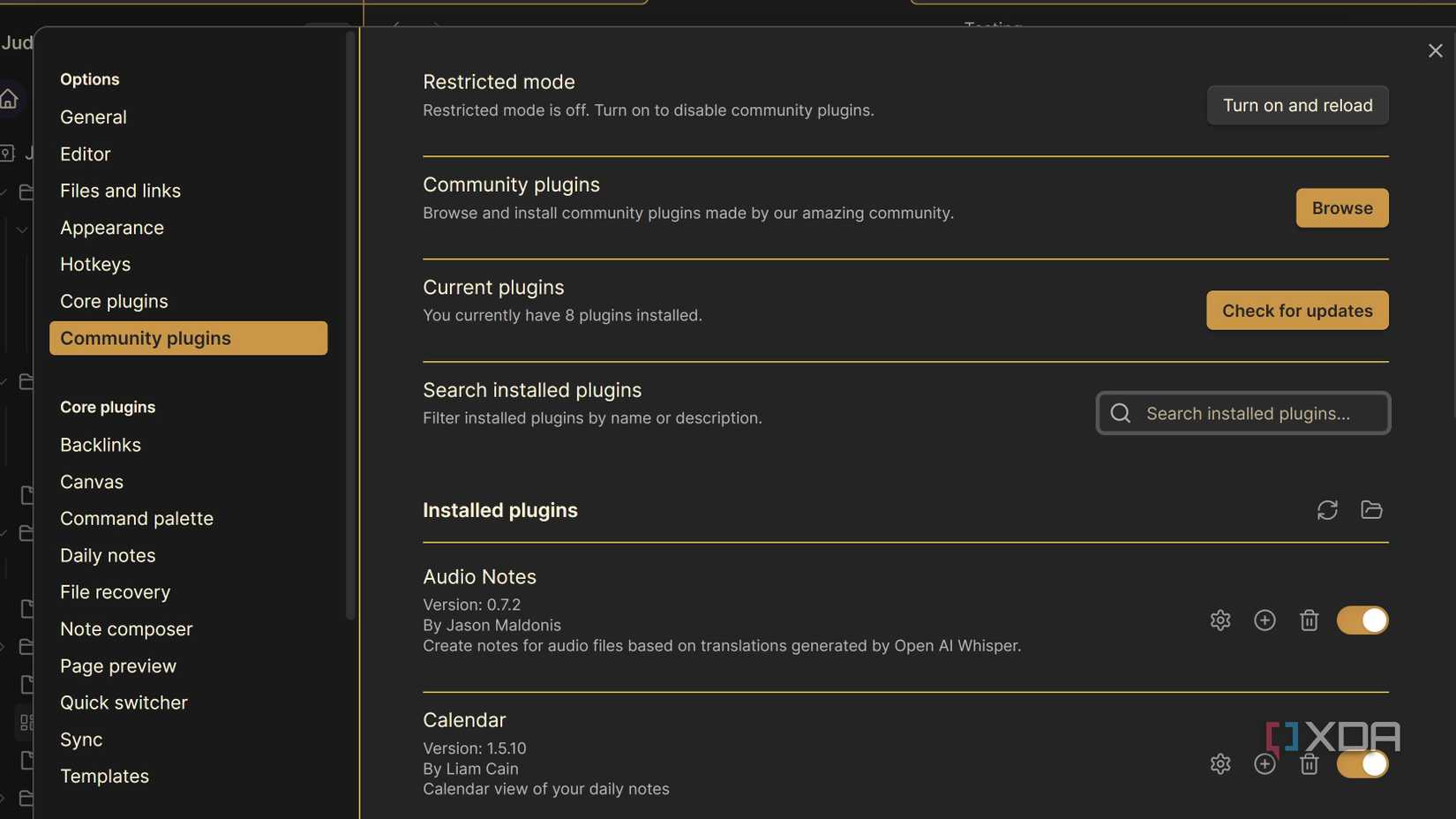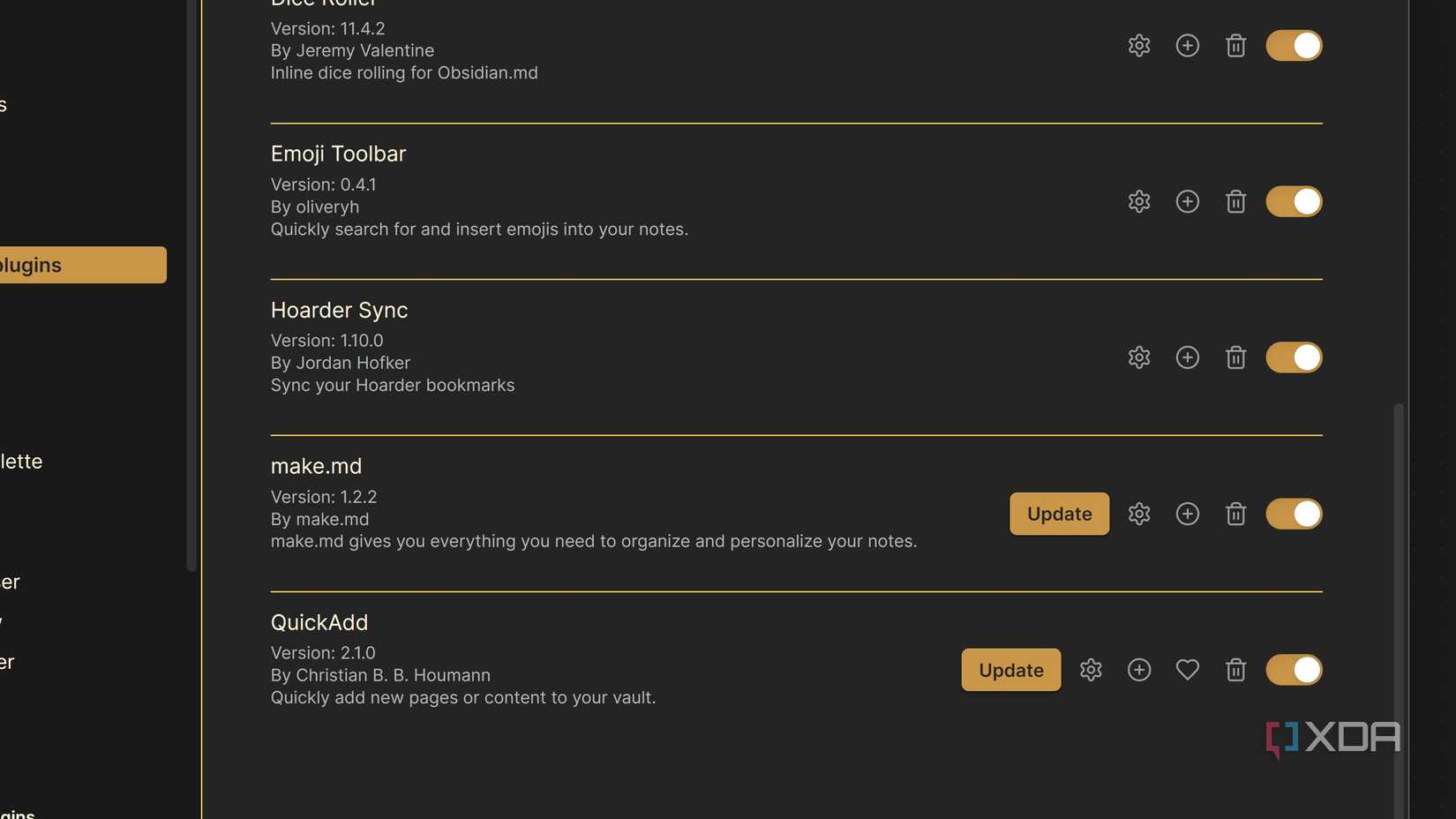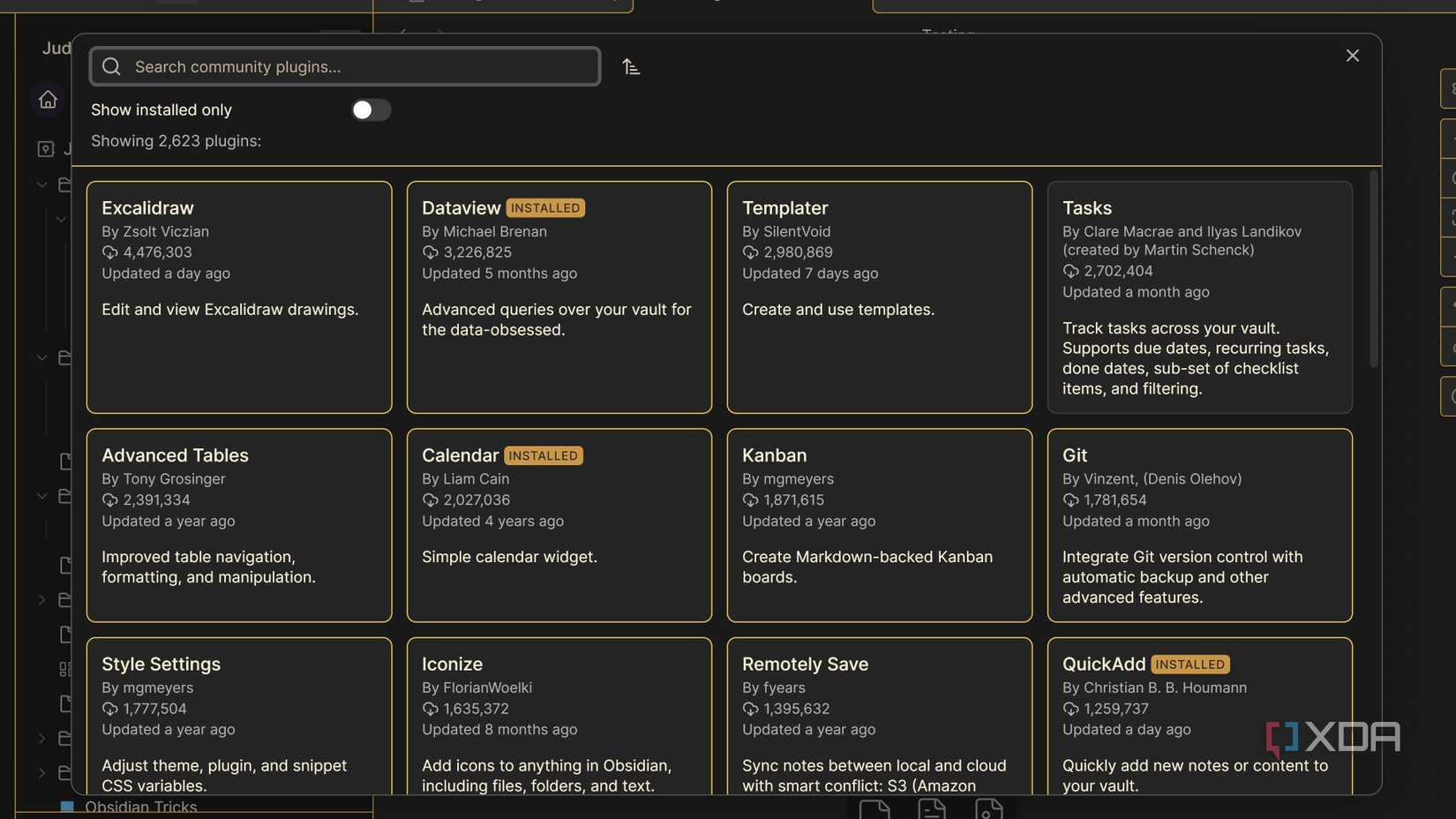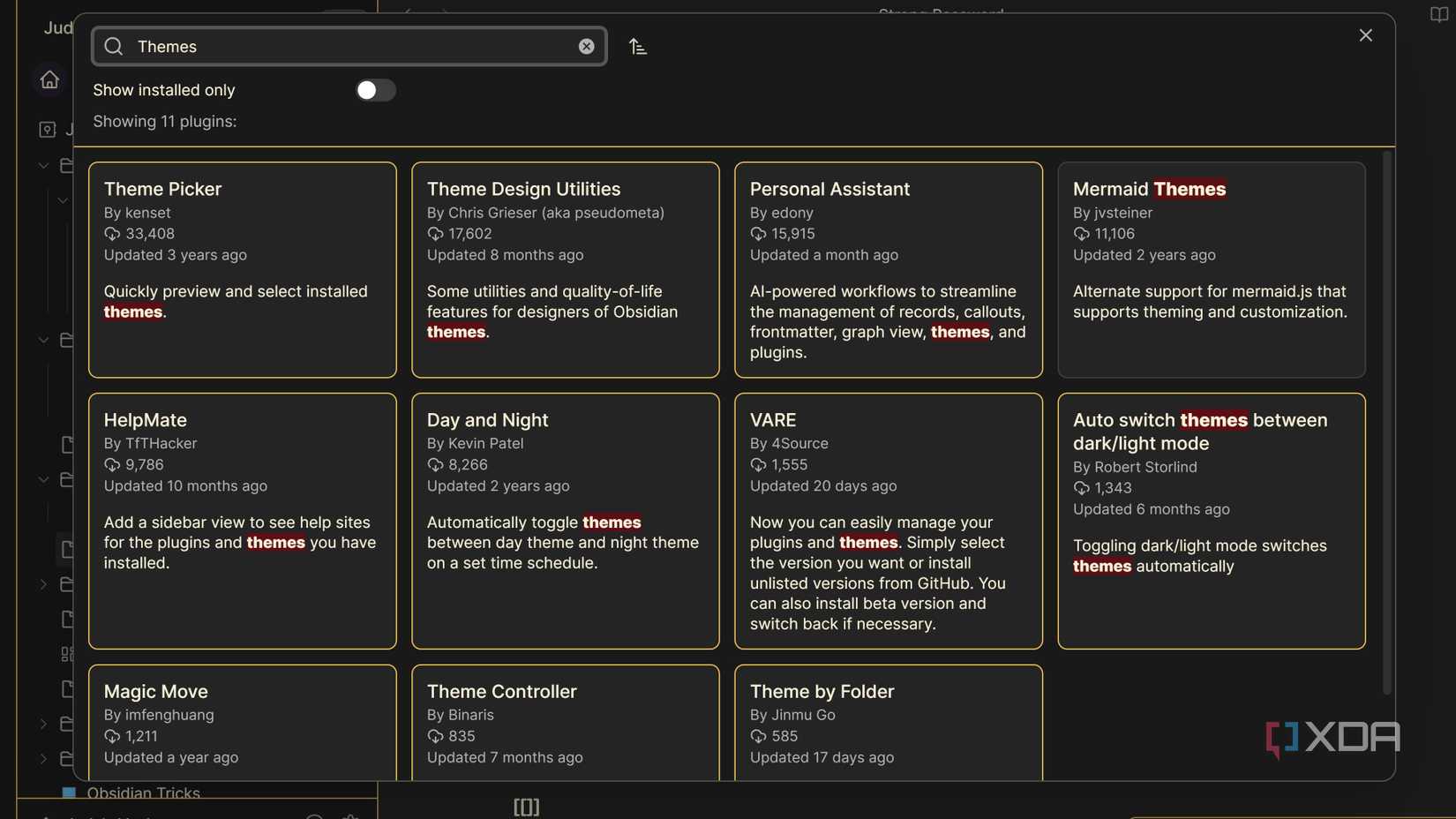I still use Obsidian because, despite its flaws, it gives me control. Everything lives in local markdown files, and I can link notes the way I want. I don’t have to pay for a subscription or a cloud platform. Additionally, one of my favorite built-in features is Graph View, which allows me to visualize how I've connected all my notes and makes it visually appealing. What bothers me is how many of Obsidian’s features depend on plugins.
Features like adding an emoji to your notes or using styled nodes that let me highlight important text without getting lost in a wall of text. The must-have features can usually be added thanks to the community plugins. They are great, but they carry the risk of breaking a plugin or leaving it abandoned. Depending so heavily on third-party developers makes Obsidian powerful, but also fragile, and that’s the trade-off I keep running into.
When a plugin gets abandoned, your workflow breaks
Essential plugins don't have easy replacements

When your setup leans heavily on plugins, the risk grows if one stops being supported. Less important plugins can usually be uninstalled with little trouble. But removing the more important ones is usually not an option you’re willing to take. If a developer stops updating the plugin, you’re left with the last working version. It may run for a while, but eventually, minor glitches start to appear.
Take Dataview. This plugin lets you create tables, pull tasks from across your vault, and organize notes in ways the core app can’t. It’s a plugin many people rely on daily. But if the developer stopped releasing updates, it would only keep working until a future Obsidian version changed something under the hood. At that point, the plugin could become incompatible or start causing errors, and you would have to scramble for a replacement, losing time and stability in the process.
Updates can break plugins
Compatibility issues cause conflicts and errors

Every time Obsidian updates, there’s a chance one of your plugins will stop working. Sometimes the change is minor, like a button that no longer does anything or a panel that refuses to load. At other times, it hits harder, especially if that plugin handles part of your workflow. A task list that doesn’t refresh or a query that starts throwing errors can quickly derail your work when you need the app most.
Conflicts make a problem worse. A plugin that tweaks how links display can interfere with another that tracks backlinks, and suddenly, both stop behaving the way they should. I’ve seen people strip plugins from their setup just to keep Obsidian running smoothly. Once you do that, you’re no longer writing or organizing notes. You’re troubleshooting, waiting for a fix, or searching for replacements that never feel the same as what you lost.
Too many plugins for new users
Decision fatigue slows you down

Obsidian’s plugin library is immense, and that’s overwhelming if you’re just starting. You don’t know which plugins are worth the time, so you end up installing several that do almost the same thing. A beginner might try three different task managers or a handful of calendar plugins before finding one that works. Instead of learning the app, you’re stuck testing, uninstalling, and adjusting settings.
It’s the same story once you settle on a few plugins. New ones keep appearing, and without a clear sense of which are essential, it’s tempting to keep tinkering. I’ve lost too much time bouncing between plugins that promised to make note-taking easier, only to realize I was hardly writing anything. The number of plugins is impressive, but without direction, it’s easy for new users to lose sight of why they opened Obsidian in the first place.
Plugins are Obsidian's biggest strength
Flexibility lets you shape the app your way
The same plugins that can cause trouble are also what make Obsidian different. Without them, it would be little more than a plain text editor. With them, the app can grow into something far more versatile. You can use plugins to add what Obsidian doesn’t give you by default, like task managers, a dashboard for backlinks and tags, or more advanced support for tables and calendars.
That freedom is why many people stick with Obsidian. You’re not locked into a single system or set of features. If you’re only looking for a clean writing tool, you can keep it simple. Plugins let you shape Obsidian into a full knowledge base with custom views. Other apps usually offer those options behind a paywall or insist you use their layout instead.
Because plugin developers move fast, you don’t have to wait months for features the core app doesn’t cover.
Relying on plugins leaves gaps that the core app should fill
Every missing feature forces you to spend time testing add-ons

Obsidian stands out because it lets you shape the app the way you want. Some people keep their setup simple, while others layer on features until it turns into a fully equipped app. That flexibility makes Obsidian stand out. The trade-off is that the same freedom that helps one person build a polished setup can leave someone with less. Two users might want the same features, but the one with more time to test and tweak plugins ends up with the stronger version of the app.
This is where the balance feels uneven. If Obsidian shipped with a richer default setup, more users could rely on the essentials without wasting hours digging through plugins.
Why the core still matters
Plugins are what make Obsidian powerful, but they shouldn't have to carry the entire app. Relying on them creates gaps, forces users to experiment, and risks breakage when developers move on or updates cause conflicts. A stronger core wouldn't replace the community's creativity, but it would provide everyone with a more stable foundation to build upon.
.png)











 English (US) ·
English (US) ·